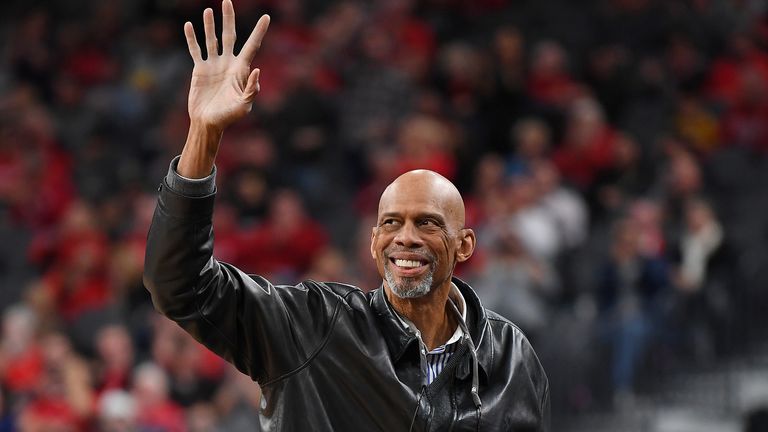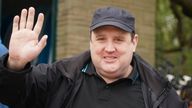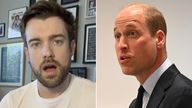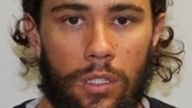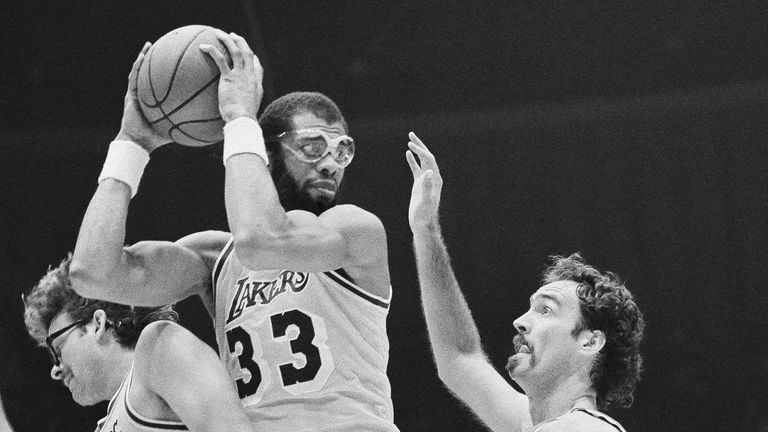NBA legend Kareem Abdul-Jabbar urges black communities to get COVID vaccine
Kareem Abdul-Jabbar says distrust in health authorities fuels vaccine hesitancy among some black communities.
Wednesday 27 January 2021 05:37, UK
COVID vaccines are the "ticket to safeguarding health", according to NBA Hall of Famer and all-time leading scorer Kareem Abdul-Jabbar.
The 73 year old filmed himself taking the vaccine to urge those feeling hesitant - especially in the Black, Asian and minority ethnic communities - to join him.
"The virus is much worse than the vaccine, the virus can kill you. Do what you can to escape that problem," he told Sky News in an exclusive interview.
"The vaccine is going to help people be safe and stay healthy, so it's essential that they take it and I want to provide an example."
Nearly three quarters of black Americans have said that when it comes to getting medical care they believe people are treated unfairly based on race or ethnicity.
Abdul-Jabbar said distrust in health authorities, stemming from segregation and disenfranchisement laws, fuels vaccine hesitancy among some black communities.
"In the aftermath of Jim Crow, a lot of doctors were hesitant to treat black people, just because of tradition and lingering bias.
"All of the medical indicators on health show that people of colour in America have a much tougher time and die earlier, and have worse health during their lifetime than the white population," he said as he called on health authorities to do more to engage those communities.
"The fact that under-served communities are vulnerable is very evident and the fact that so many people of colour in the black community have a much higher rate of infection and death is very unfortunate but this is what we're dealing with."
Abdul-Jabbar, who registered 38,387 points in his 20-year playing career, is still regarded as one of the best players in NBA history. As a college player at UCLA, he had led anti-racist protests and campaigned for better rights for all Americans at the height of the 1960s civil rights movement.
In 1971, after winning the NBA title with the Milwaukee Bucks, Abdul-Jabbar exercised what he described as his American right to freedom of religion and converted to Islam.
He said that being a Muslim in America is now harder because of Donald Trump's legacy, which included discriminatory policies such as the "Muslim ban".
"People look at you with suspicion," he said, before calling for tolerance and acceptance of all people.
"I think we have to get back to practising tolerance and accepting different opinion between different communities, whether they be social or religious.
"We've had a lot of polarisation in our country politically. There's almost a 50-50 split throughout our legislative bodies both the Senate and the House of Representatives."
As a player, Abdul-Jabbar won six NBA titles and six Most Valuable Player awards, becoming an icon for the Los Angeles Lakers and taking his place in the NBA Hall of Fame. Today, he says the pandemic has thrown him into extreme isolation which he survives with the help of reading novels and watching films.
His real passion is working with under-served communities through his Skyhook Foundation, which takes mobile learning to children while schools are closed due to the pandemic.
"We go to the parks and recreation centres where we can go outdoors and give the kids examples of work with science, technology, engineering and math and this seems to have a very positive effect on them and it helps give them a sense of normalcy and continuity."
Working with the Los Angeles Unified School District and the tech giant Panasonic, Abdul-Jabbar hopes to give children a better chance in life so that they can close the racial divide - a shot, he says, that can't be blocked.
"Too many of the kids in the US schools systems don't get a good idea of how to take the best advantage of their educational opportunity. We hope to figure in that process and get them turned the right way, doing the right things and so far so good."
